Reggae Revolution: How Jamaican Beats Conquered the World
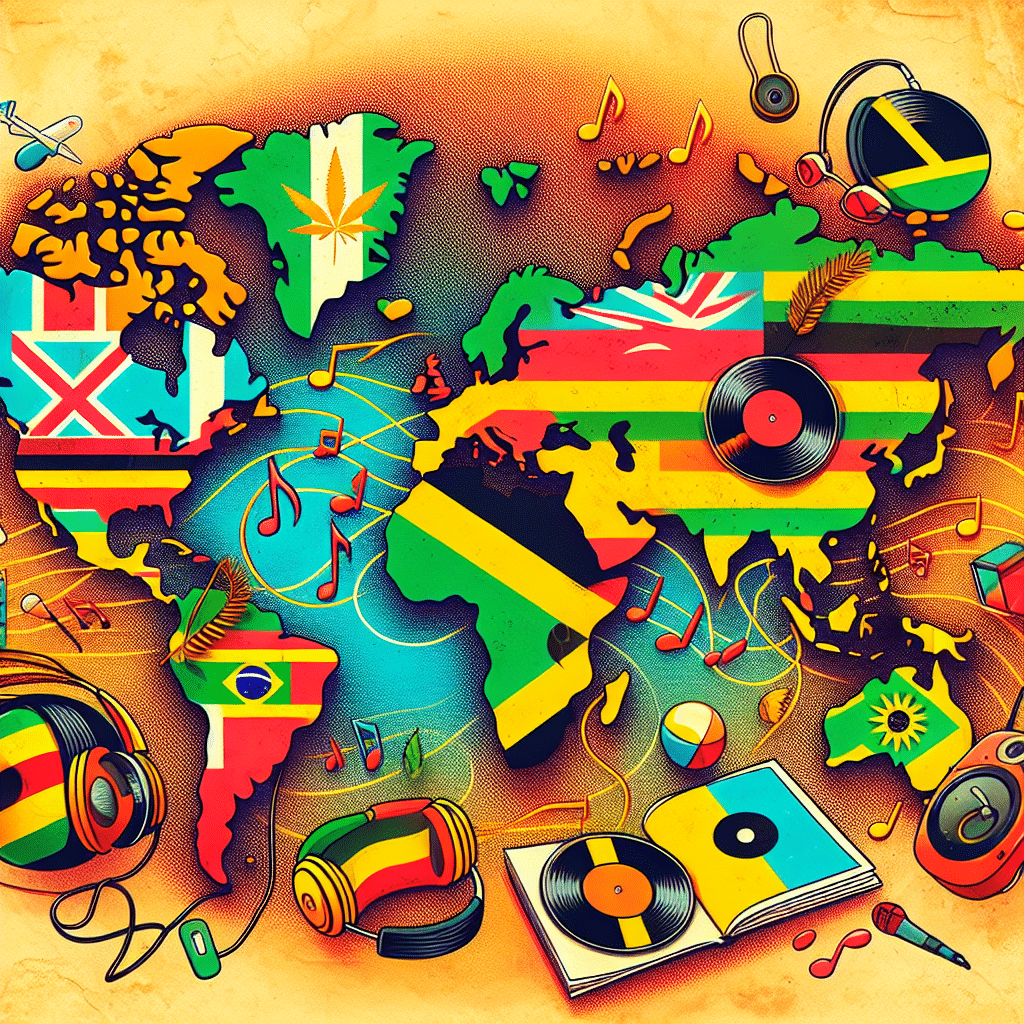
Introduction
Reggae music is more than just a genre; it is a cultural phenomenon that captures the essence of a nation and the struggles of its people. Originating from Jamaica in the late 1960s, reggae harmonizes various musical influences, combining elements of ska, rocksteady, and rhythm and blues to create a distinctive sound characterized by its rhythmic guitar skanks, deep basslines, and socially conscious lyrics. Beyond its infectious beats, the genre has conveyed powerful messages of hope, resistance, and love, transcending geographical and cultural boundaries to touch lives around the globe. This article delves into the reggae revolution, exploring how Jamaican beats not only conquered various musical landscapes but also ignited cultural movements worldwide.
The Roots of Reggae: A Musical Melting Pot
Early Influences
Reggae's origins can be traced back to Jamaica's rich musical history. The island was a melting pot of cultures, with African, European, and indigenous Taino influences shaping its music. The early 1960s saw the emergence of ska, characterized by fast tempos and upbeat rhythms, which evolved into rocksteady—slower and more soulful. By the late 1960s, reggae emerged as a distinct genre, distinguished by its syncopated rhythms and socially aware lyrics.
See Also: From Jamaica to the World: The Global Impact of Reggae Beats
From Jamaica to the World: The Global Impact of Reggae BeatsIconic Sound and Themes
The signature sound of reggae includes the use of the offbeat guitar, known as the "one drop" rhythm, along with prominent basslines. Lyrically, reggae often addresses themes such as socio-political struggles, love, spirituality, and unity. This powerful combination enabled reggae to resonate deeply with audiences domestically and abroad.
Global Spread of Reggae: From Jamaica to the World
Early Exports
As reggae gained popularity within Jamaica, it began to spread internationally in the 1970s. Pioneering Jamaican artists such as Bob Marley, Peter Tosh, and Jimmy Cliff played crucial roles in introducing reggae music to a global audience. Bob Marley's "No Woman, No Cry" and "One Love" became anthems of empowerment, resonating with people seeking solace and hope amidst their challenges. Marley's performances at prestigious events, such as the 1978 One Love Peace Concert, showcased reggae’s potential as a force for social change.
The Reggae Renaissance: A New Wave of Artists
See Also: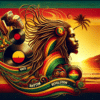 Roots, Rhythm, and Revolution: A Deep Dive into Reggae's Historical Journey
Roots, Rhythm, and Revolution: A Deep Dive into Reggae's Historical JourneyWith the advent of the 1980s and 1990s, reggae music continued to evolve. New artists emerged, blending traditional reggae with other genres, giving birth to sub-genres like dancehall and roots reggae. This period also saw the rise of reggae fusion, where artists incorporated elements of hip-hop, rock, and electronic music into their sound. Artists such as Sean Paul, Damian Marley, and Shaggy played pivotal roles in popularizing reggae globally, appealing to younger audiences and diversifying the genre’s appeal.
Cultural Impact of Reggae: More Than Just Music
Social and Political Movements
Reggae has always been intertwined with social and political movements, acting as both a voice for the oppressed and a mechanism for change. The genre emerged during a time of political turmoil in Jamaica, reflecting the struggles for independence and identity. Reggae music has provided a platform for advocating social justice, anti-colonialism, and civil rights, empowering marginalized communities worldwide. The genre’s international appeal has enabled it to resonate in various social movements, from the civil rights campaigns in the United States to anti-apartheid efforts in South Africa.
Spirituality and Rastafarian Influence
Rastafarian culture has also significantly influenced reggae music. Arising from Jamaica in the 1930s, Rastafarianism promotes a way of life that emphasizes spiritual connection, social justice, and communal living. This movement's teachings and ethos have permeated reggae lyrics, emphasizing themes of love, unity, and resistance. Artists like Bob Marley have embodied these principles, using their platform to spread messages of peace and enlightenment.
See Also: Legends of the Lane: Celebrating Jamaica's Iconic Reggae Artists
Legends of the Lane: Celebrating Jamaica's Iconic Reggae ArtistsReggae Today: A Global Force
Reggae Festivals and Movements
Today, reggae music is celebrated worldwide through various festivals and events, such as the annual Reggae Sumfest in Jamaica and the Rototom Sunsplash in Spain. These gatherings attract thousands of fans, showcasing both established artists and emerging talents and reaffirming reggae's universal appeal.
Collaborations and Cross-Genres
In the age of globalization, reggae has continued to thrive through cross-genre collaborations, fusions, and remixes. Contemporary artists from diverse backgrounds draw inspiration from reggae, integrating its elements into pop, hip-hop, and jazz. Collaborations between reggae musicians and artists from different genres have led to innovative sounds and broadened reggae's audience, further establishing it as a core influence in modern music.
See Also: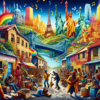 From Trenchtown to the Global Stage: The Journey of Reggae Music
From Trenchtown to the Global Stage: The Journey of Reggae MusicThe Importance of Reggae Revolution
The reggae revolution is grounded in its ability to transcend cultural and geographical barriers. It represents a rich tapestry of sounds, messages, and movements that advocate for social justice and unity. As reggae continues to evolve, its roots remain strong, reminding us of the genre's profound cultural and historical significance. The immense popularity of reggae music, coupled with its cultural resonance, demonstrates that the messages embedded within these Jamaican beats continue to inspire and uplift audiences globally.
Conclusion
The Reggae Revolution stands as a testament to the power of music as a vehicle for cultural expression and social change. From the streets of Kingston to stages worldwide, reggae has carved out a space in the heart of popular music while retaining its authenticity and integrity. As artists continue to innovate and inspire, the spirit of reggae will undoubtedly endure, inspiring future generations with its rhythms of resilience, love, and hope.
FAQs About Reggae Music
1. What is Reggae music?
Reggae music is a genre that originated in Jamaica in the late 1960s, characterized by rhythmic guitar skanks, deep basslines, and lyrics that often address themes of love, social justice, and resistance.
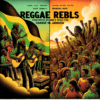 Reggae Rebels: How Music Became a Voice for Change in Jamaica
Reggae Rebels: How Music Became a Voice for Change in Jamaica2. Who are the pioneers of Reggae?
Prominent figures in the reggae movement include Bob Marley, Peter Tosh, Jimmy Cliff, and Bunny Wailer, who played key roles in popularizing the genre both in Jamaica and worldwide.
3. What influence does Rastafarian culture have on Reggae?
Rastafarianism is deeply intertwined with reggae, promoting messages of peace, social justice, and spiritual connection. Many reggae songs reflect Rastafarian themes and philosophies.
4. How has Reggae evolved over the years?
Reggae has evolved through the emergence of sub-genres such as dancehall and reggae fusion, where artists incorporate elements of hip-hop, pop, and electronic music, broadening its appeal to diverse audiences.
5. Are there reggae festivals?
Yes, there are numerous reggae festivals worldwide, such as Reggae Sumfest in Jamaica and Rototom Sunsplash in Spain, celebrating the genre's legacy and showcasing new talents.
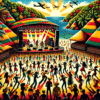 Vibrant Vibes: Experiencing the Essence of Reggae Festivals Worldwide
Vibrant Vibes: Experiencing the Essence of Reggae Festivals WorldwideIf you want to know other articles similar to Reggae Revolution: How Jamaican Beats Conquered the World you can visit the category Reggae.
